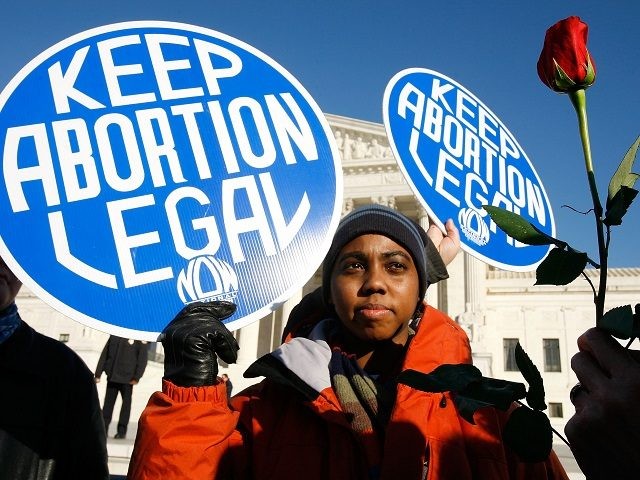WASHINGTON, DC – Sen. Susan Collins’ (R-ME) vote might be essential to confirming President Trump’s unnamed Supreme Court nominee. On Sunday, Collins told ABC’s This Week that a Supreme Court pick who had made clear that he would overrule Roe v. Wade would be unacceptable but that she would vote for someone who shows great respect for precedent because she thinks such a justice would regard Roe as “settled law.”
Every senator’s vote will count in confirming the eventual nominee because with Sen. John McCain not voting in the Senate due to his serious cancer, Republicans hold the barest of margins in what is now consequently a 50-49 Senate.
In a full-length Sunday morning interview, Martha Raddatz asked Collins about a White House meeting she and four other moderate senators had with the president regarding his selecting a replacement for Justice Anthony Kennedy. In addition to Collins, the group of two Republicans and three Democrats included Sens. Lisa Murkowski (R-AK), Joe Manchin (D-WV), Heidi Heitkamp (D-ND), and Joe Donnelly (D-IN).
While not discussing many details of her private conversation with the president, Collins told Raddatz she “suggested that he broaden his search beyond the list of 25 nominees,” referring to the president’s “List of 25” from which he has pledged to pick the new justice.
Collins discussed what she was looking for in a new justice, listing various attributes, then adding, “Most importantly of all, respect for precedent.”
That was a reference to Roe, where the Court in 1973 invented a constitutional right to abortion.
“A candidate who would overturn Roe would not be acceptable,” said Collins, “because I believe that they have demonstrated a disrespect for the vital principle of stare decisis.”
Stare decisis is a Latin term referring to adhering to precedent. Once a court has decided an issue, stare decisis is the policy that the same court should abide by that precedent in future cases unless there is an extraordinary justification for overruling it.
Collins quoted Chief Justice John Roberts, who called stare decisis a “fundamental principle of our judicial system.”
Roberts also referred to Roe as “settled law,” which she took as a sign that he might not overrule Roe if given the chance.
“The president listened very intently to what Lisa Murkowski and I said,” Collins continued, saying she regarded his meeting with them as “genuine outreach” regarding the Supreme Court.
The Maine Republican added that “it would be inappropriate” to ask a judicial nominee how they are going to vote on a future case, including one challenging Roe.
Collins also said “that good judges are always unhappy with some of their decisions but they make the right call regardless of their personal views. And that’s what I want to see in this nominee.”
For several reasons, Collins should be comfortable with President Trump’s process and his eventual choice.
First, most of the people on the List of 25 do not have a record of stating that they would overrule Roe. Most of them similarly have a record of speaking of the importance of precedent. That combination would seem to satisfy Collins’ requirements.
Second, there is a good chance that the fate of Roe does not turn on this Supreme Court pick even if that nominee would vote to overturn the 1973 precedent. Of the current members of the Supreme Court, only one justice has said he would overrule Roe: Justice Clarence Thomas.
Roe has not been squarely challenged in recent years, so there has been no occasion for Chief Justice Roberts or Justices Alito or Gorsuch to vote on Roe one way or the other.
Many experts question whether Roberts, in particular, would be willing to go that far, given comments such as the one Collins cited, where he extolled the importance of stare decisis and also said that Roe was settled law. He places greater value and weight on stare decisis than any other member of the Court, only rarely voting to jettison precedent.
These experts consider it likely that Roberts will allow significant restrictions on abortion while retaining Roe. There may be other justices who share that view, and if so, Collins and Murkowski could support the president’s nominee in any event.
Moreover, the chief justice breaks with conservatives a fair amount of the time and has repeatedly shown that he does not regard originalism – interpreting the Constitution according to the original public meaning of its words – as the only acceptable way to interpret the Constitution.
President Trump must walk a fine line in selecting a Supreme Court justice as he pursues a route that will result in confirmation in the narrowly divided Senate ahead of the 2018 midterm elections, and Collins seems to enjoy the leverage her critical role in that process brings.
Ken Klukowski is senior legal editor for Breitbart News. Follow him on Twitter @kenklukowski.

COMMENTS
Please let us know if you're having issues with commenting.